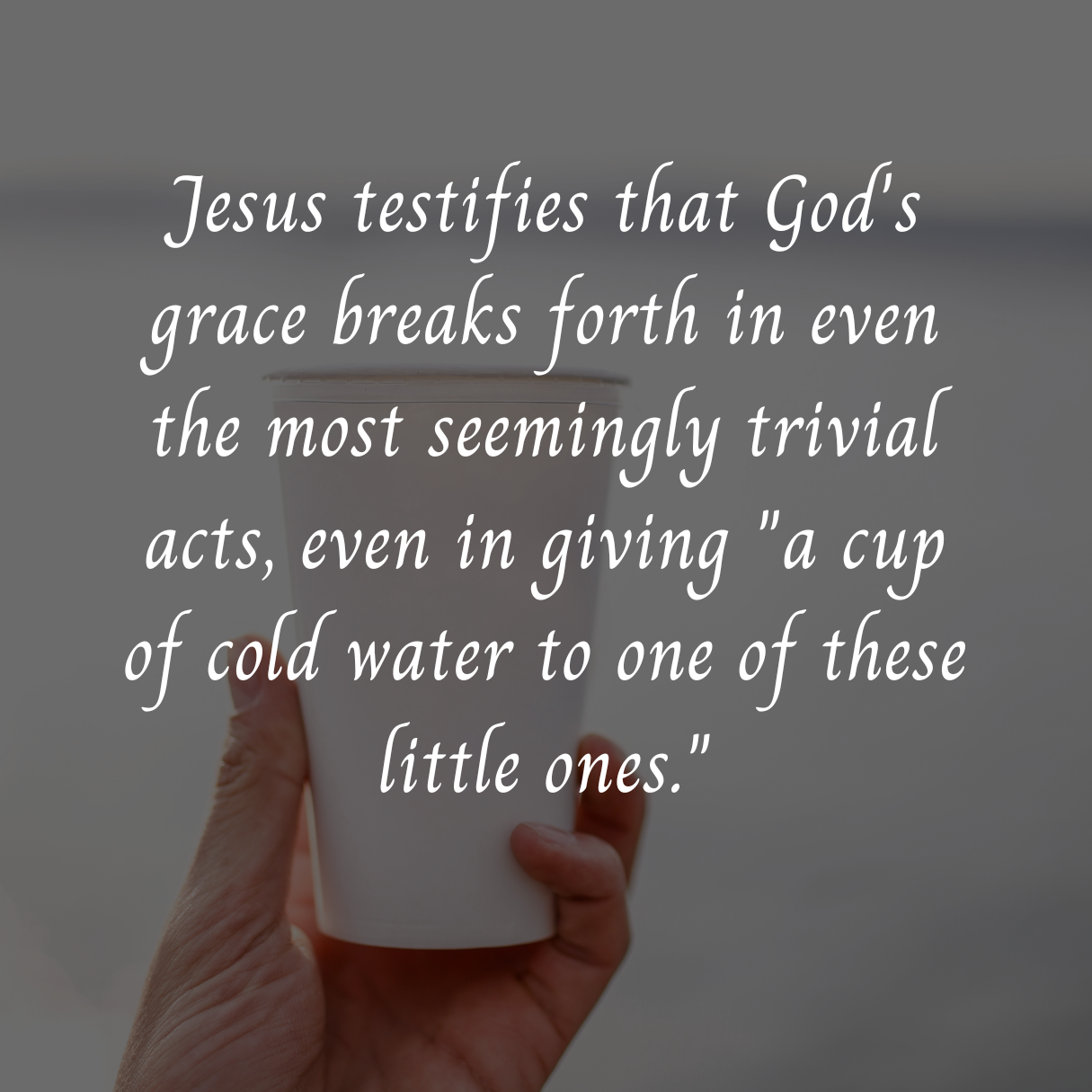Ash Wednesday – Year B
THE PROBLEM AND PROMISE OF REWARDS
Ash Wednesday
Matthew 6:1-6, 16-21
Analysis by Bruce K Modahl
[Jesus said to the disciples:] 1“Beware of practicing your piety before others in order to be seen by them; for then you have no reward from your Father in heaven.
2“So whenever you give alms, do not sound a trumpet before you, as the hypocrites do in the synagogues and in the streets, so that they may be praised by others. Truly I tell you, they have received their reward.
3But when you give alms, do not let your left hand know what your right hand is doing,
4so that your alms may be done in secret; and your Father who sees in secret will reward you.
5“And whenever you pray, do not be like the hypocrites; for they love to stand and pray in the synagogues and at the street corners, so that they may be seen by others. Truly I tell you, they have received their reward.
6But whenever you pray, go into your room and shut the door and pray to your Father who is in secret; and your Father who sees in secret will reward you.
16“And whenever you fast, do not look dismal, like the hypocrites, for they disfigure their faces so as to show others that they are fasting. Truly I tell you, they have received their reward.
17But when you fast, put oil on your head and wash your face,
18so that your fasting may be seen not by others but by your Father who is in secret; and your Father who sees in secret will reward you.
19“Do not store up for yourselves treasures on earth, where moth and rust consume and where thieves break in and steal;
20but store up for yourselves treasures in heaven, where neither moth nor rust consumes and where thieves do not break in and steal.
21For where your treasure is, there your heart will be also.”
The gospel is preached to us and preached into us so that we come to trust the one who tells us the truth, “You are dust and to dust you shall return.” … The reward he brings is forgiveness.
DIAGNOSIS: Dust to Dust
Step 1: Initial Diagnosis (External Problem): Stripped of light
We perform a pantomime of perfection.
The lines above and at Step 2 come from Philip Kolin’s poem “The Catechumens Recite their Scrutinies.” Jesus scrutinizes the pious rituals of some and finds them to be pantomimes, performances, charades. They are not real. In a Christian publication I spotted an advertisement for a seminary. The advertisement featured a photograph of an Ash Wednesday service with student worship leaders imposing ashes. What
drew me to the ad were the smiles on their faces as they reached their ashy thumbs to the foreheads of those who stood before them. How is it possible to smile at people and at the same time tell them, “You’re going to die”? This must be staged for the camera, I thought. Perhaps they were saying different words, words they could smile over.
Step 2: Advanced Diagnosis (Internal Problem): We are lost in the dense darkness of self
Confusing the space of a coffin with
The size of a galaxy.
In the Lenten season, God would draw us into the biblical narrative. The one who imposes the ashes repeats what God said to Adam and Eve as he banished them from the garden, “You are dust and to dust you shall return” (Gen. 3:19). We are inclined to pantomime the action and skip those words because we don’t want to hear such things. And we don’t want to hear such things because we don’t trust the One who first spoke them.
Step 3: Final Diagnosis (Eternal Problem): Banished
The crowd rewards the pantomime performer with approval and applause. We create a narrative for our lives with ourselves at the center. With ourselves as the sum and substance, the narrative begins and ends in the dust. We have confused the space of a coffin with the size of a galaxy. It is to the grave we are banished.
PROGNOSIS: Cruciform Dust
Step 4: Initial Prognosis (Eternal Solution): Rewarded
And yet it is to that narrow chamber our Lord comes with his reward. God in Christ came from and returned to the dust as do we. He died on the cross for us. For our sakes he was buried. To the dust he committed our trespasses. The reward he brings is forgiveness. He rewards us with his own righteousness. On the third day this Man of dust rose from the dead and ascended to the right hand of the Father. The reward he brings is eternal life. So, the ashes inscribed on our foreheads form the shape of a promise.
Step 5: Advanced Prognosis (Internal Solution): New Life in Christ
At baptism the Holy Spirit inserts our lives into God’s narrative. The Holy Spirit writes us into God’s story. This good news is foreign to us. What is native to us is we must earn the reward. The gospel is preached to us and preached into us so that we come to trust the one who tells us the truth, “You are dust and to dust you shall return.” There is nothing to smile about here. We can admit the truth about ourselves because we trust the one who speaks it to us. This is the One who forgives us, gives us his righteousness, promises us life eternal, and indeed gives us a great deal to smile about.
Step 6: Final Prognosis (External Solution): Sharing the Rewards
We do not hoard the rewards we receive from God. We share them. I propose we undertake the disciplines of Lent as Christ’s benefits we share with others.
Repentance: We have the benefit of being able to turn to God for forgiveness not seven times but endless times. We are entrusted with the ministry of reconciliation in the places where we live and work.
Prayer: Luther says God commands us to pray and promises to listen. Robert Jenson writes that as we live in Christ, we enter into the living personal community between the persons of the Trinity. We pray, he says, “to the Father, with the Son, in the Spirit.” This puts a new spin on the saying, “All we can do is pray.”
Fasting: If we give up something for Lent, let it be for the benefit of others. For example, give up a fast-food meal once a week and give the money saved to the community food bank.
Works of love: Luther made a distinction between political righteousness and the righteousness we have from Christ. In the political or civic sphere of life, works of love are works seeking justice. Jesus fed the hungry, healed the sick, tended to the needs of (in Robert Capon’s words) the least, the last, and the lost. With the benefit of Christ’s righteousness, we can’t help but seek justice in the neighborhoods and world in which God has planted us.



